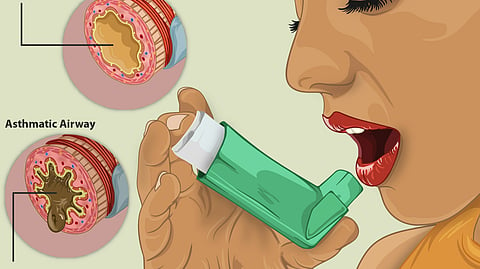Theme Spotlight: "Make Inhaled Treatments Accessible for ALL"
GINA’s 2025 theme draws attention to the global gaps in asthma care and how, in many situations, it continues to fall short of its full potential.
It emphasizes that every individual with asthma should have access to evidence-based preventive treatments, especially inhaled corticosteroids (ICS), as a standard part of care.
Governments are urged to prioritize respiratory health, ensuring ICS medications are included on essential drug lists and made affordable through subsidies or cost-reduction policies. Meanwhile, pharmaceutical companies and suppliers must collaborate to enhance the availability and accessibility of asthma medications, particularly in underserved regions.
The overarching goal is to ensure equitable care, improved health outcomes, and the protection of dignity and respect for all people living with asthma.


